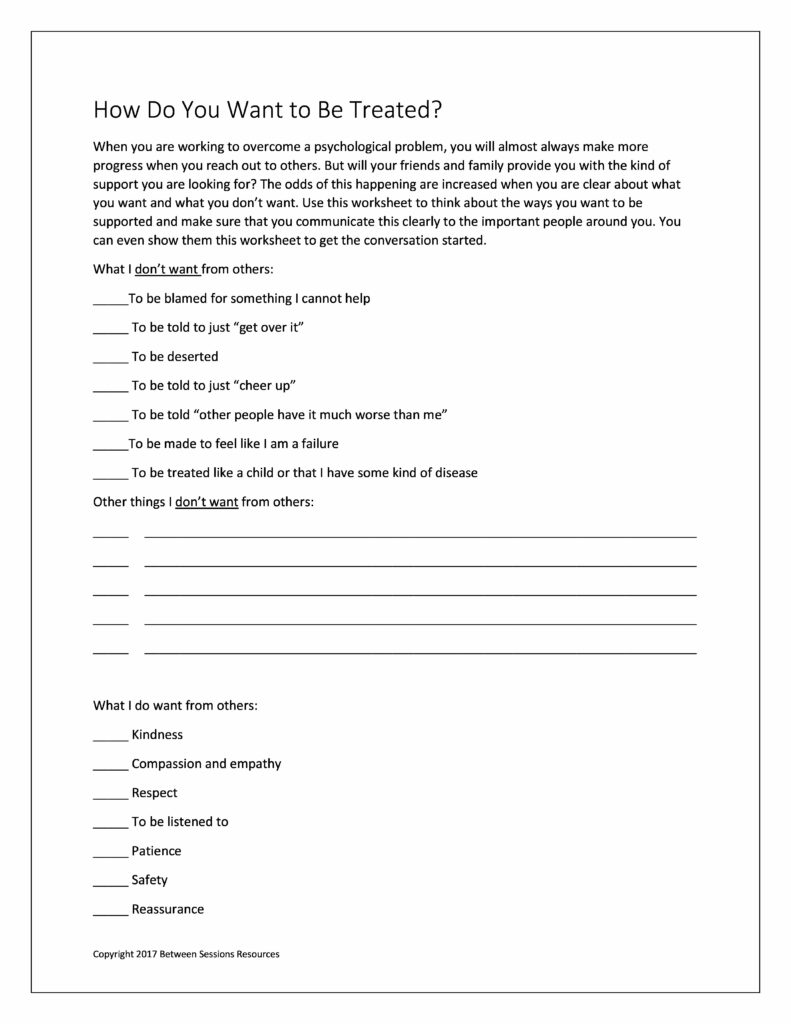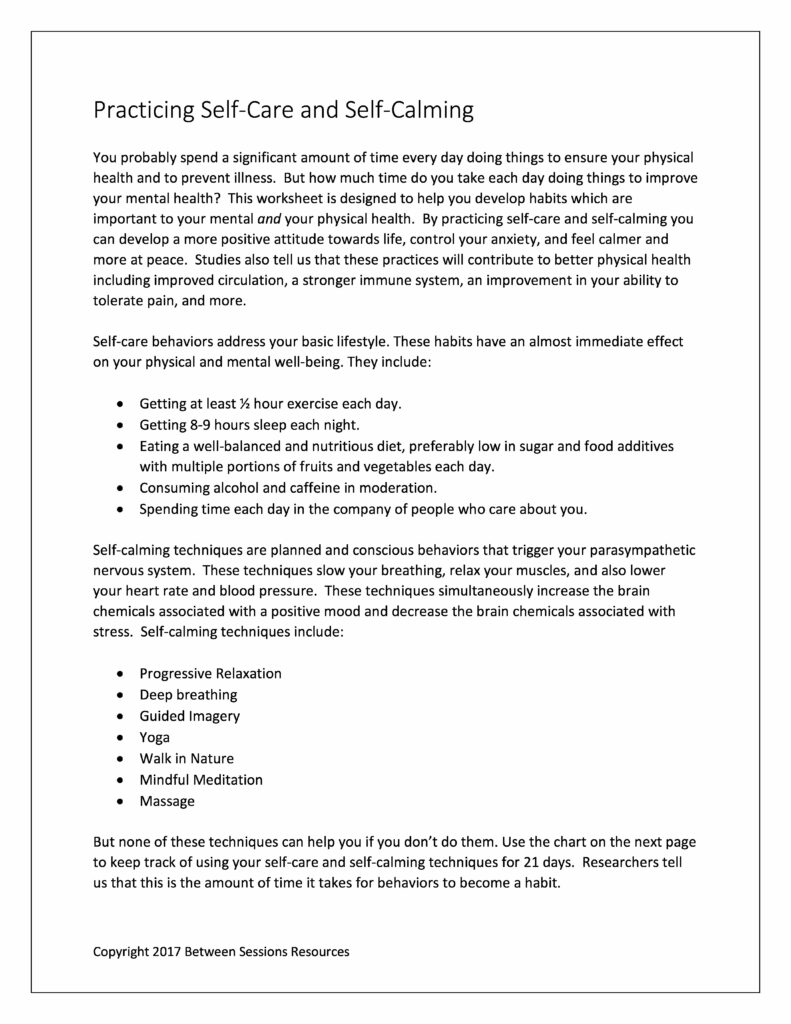Our coaching forms cover a wide variety of issues in the areas of self-growth, life skills, and wellness.
To modify the tools, click the ‘Send to Client’ button by each tool to open our Psychology Forms Filler. You can edit the tool as you see fit and then either print it out or send it to a client to be filled out online. Click here for a tutorial on using the Psychology Forms Filler.
Use the navigation links on the left of this page to view tools in a specific category. Or use the search function at the top of this page to find the exact tool you are looking for.
If you can’t find what you are looking for on this site, please let us know by
clicking here and our team of writers, graphic artists, and therapists will custom-design it for you.
This worksheet is designed to help individuals with a sex addiction identify the internal and external triggers that are associated with their addictive behavior. The worksheet also asks individuals to rate the force of the trigger and to think of a way to respond to each trigger with a positive non-sexual activity. (sex addiction, CBT, behavior training, 0517)
This worksheet helps people learn to treat themselves with more compassion, much like they would treat a loved one in need. (depression, self-care, 0517)
This worksheet is intended to help people who are depressed set goals that will make them happier and help them feel more fulfilled in their lives. (depression, goal setting, problem-solving, 0417)
This worksheet is designed to help people think about how others can help them with their psychological problems. The worksheet asks them to think about both the things that they want from others as well as the things they don’t want. (depression, social skills, communication, 0417)
This worksheet can be used to help alleviate depression by having people simply list three good things that happen each day. Studies have suggested that this simple technique can help lift the mood of even extremely depressed people. (positive psychology, depression, 0417)
This worksheet is designed to help people stop putting themselves down with negative thoughts and statements. Clients are asked to make seven copies of the worksheet, and use one worksheet each day for a week. They are asked to cross out a penny each time they have a negative thought. By the end of the week, they should still have all the pennies in the jar on their worksheet. (depression, CBT, thought changing, 0317)
This rating scale asks people to identify and rate how often they use their signature strengths as a way to increase their happiness. (depression, authentic happiness, positive psychology, 0317)
This worksheet is designed to help people talk back to the thoughts that cause them to be anxious and fearful. (anxiety, panic attacks, CBT, 0317)
This worksheet is designed to encourage people to practice both self-care and self-calming techniques on a daily basis. The worksheet lists types of techniques are effective in each category and includes a form to record the use of these techniques for 21 days (the time it takes to form a habit). (PTSD, depression, anxiety, eating disorders, 0217)
This worksheet asks clients to consider anything that might have helped them in finding solutions to their problems, whether it was something they learned in therapy or something they learned on their own, such as self-help books, advice from a friend, sudden insights, and so on. (0217)










